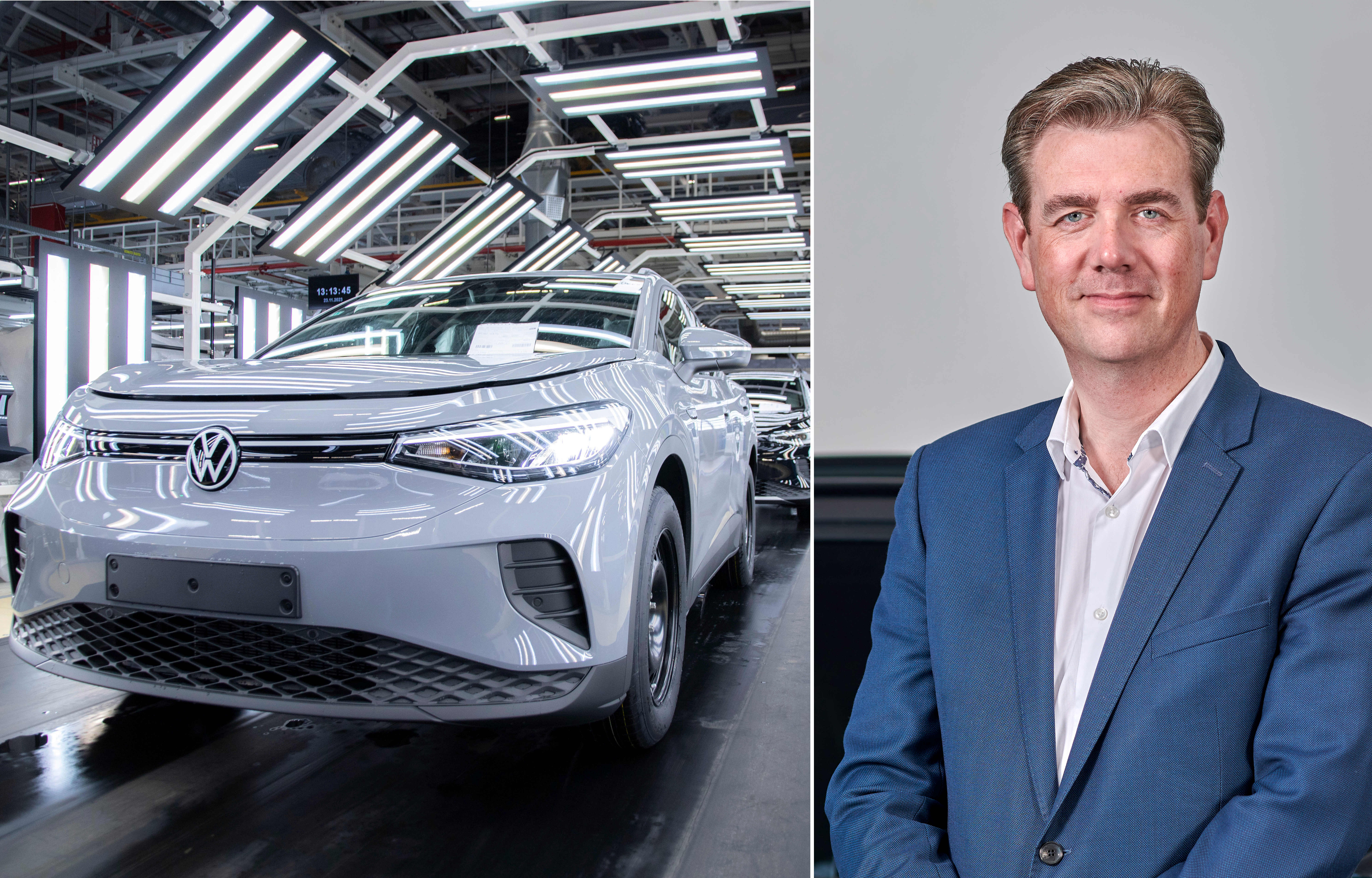Q&A: Volkswagen Group UK boss Alex Smith on sales, electric vehicle incentives, China and the relatable brilliance of Skoda
And successful Seat's still part of future plans, claims MD
Recent months have brought reports of a slowdown in electric vehicle sales, and in June Volkswagen said it would halt production of its EVs for “at least six weeks” at one of its biggest plants in northwest Germany. The cause? “Strong customer reluctance,” according to Manfred Wulff, the head of the Emden plant. Yet in an interview with Driving.co.uk at the end of October, VW Group’s UK boss was upbeat, highlighting a bumper year of growth and an increase in market share for battery-powered cars.
In fact, Alex Smith, managing director of Volkswagen Group United Kingdom, was delighted with the sales performance of all the brands for which he oversees, including VW, Audi, Cupra, Skoda and Seat — the latter being a brand that, despite recent reports suggesting it might be for the axe, has a bright future, Smith claims.
Here’s the discussion in full, covering these issues and more, including the importance of commercial vehicles, the threat from China, the state of charging infrastructure in the UK and Rishi Sunak’s delay to the ban on sales of new petrol and diesel cars.
Driving.co.uk:
How healthy is the VW Group in the UK, in terms of sales, revenue and profit?
Alex Smith:
It’s been a really encouraging year. We got to the end of September having delivered just over 350,000 new vehicles, new cars and vans with a market share of 22.3 per cent, which is a good market share gain over the first nine months of the previous year, when were at just over 19 per cent. Our growth rate overall was 37 per cent, while the market growth rate was 16 per cent. So we grew twice as much as the market did over the first nine months of the year.
In this building we’re responsible for Volkswagen, Audi, Seat, Cupra, Volkswagen Commercial Vehicles and Skoda, and if I look at those brands we can find something to celebrate in each.
Volkswagen passenger cars retained its number one position, which is not something we explicitly aim at but it’s there to be celebrated when it’s achieved. Audi after nine months of the year was at number three, and the number one premium brand. Skoda over the first nine months of the year has grown by over 40 per cent; Seat’s grown by over 40 per cent; Cupra’s grown by almost 80 per cent year on year.
So overall, I think we can be satisfied with our work. I’m very grateful for the products that we get from our factories.

Driving.co.uk:
You mentioned vans; the commercial vehicles. The best selling vehicle in the UK last year was the Ford Transit; what proportion of commercial vehicles to passenger cars do you have and how important are vans to Volkswagen Group’s present and future business plan?
Alex Smith:
Commercial vehicles are really important. We’re very proud of the Volkswagen Commercial Vehicles brand. To give you an idea of the relative scale within our business here, of passenger car sales to the commercial vehicle sales, in the first nine months of the year passenger cars was about 320,000 and commercial vehicles was about 30,000.
But of course, the markets are very different sizes. If we look at our market share in commercial vehicles, we’ve got just over 10 per cent of the market, year to date. And again, there’s been good growth: over 30 per cent year on year in the first nine months, versus a market without us that’s up about 18 per cent. So yeah, it’s important.
The T6 Transporter remains very popular. [We had] over 13,000 Transporter sales in the first nine months this year, up a quarter. So, very satisfied with that. And of course, our commercial vehicles are not just commercial vehicles: we’ve got the new Amarok pick-up, which is proving very popular.
And we’re also in the leisure sector, whether it’s our Transporter vans that are then subsequently converted into motorhomes or our own Volkswagen California — our own camper product — which is, with the trend towards staycations and holidaying at home — in part driven by the pandemic but also in part, I think, driven by people’s environmental consciousness and wish to avoid flying as much as they did — then California sales are doing really well. It’s is a real premium product and we still sold more than a thousand Californias in the first nine months.
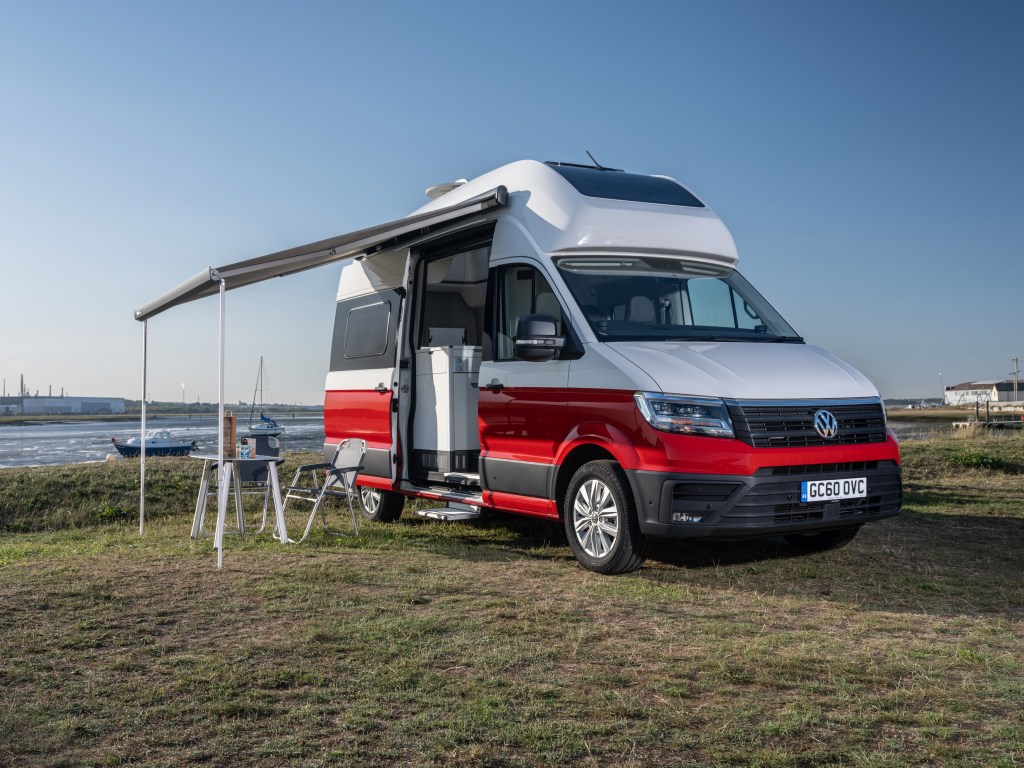
Driving.co.uk:
Moving on to electrification… the industry has been pretty serious about electrification for well over a decade, but I’m afraid I’m going to mention dieselgate, which ended up being a large part of the stimulus for the whole market to move into electrification. But how tricky has the pivot to electric vehicles been for Volkswagen Group?
Alex Smith:
We’ve got a share of the battery electric vehicle passenger car market just shy of 20 per cent. So it’s roughly equivalent to our overall market share. If you add all our brands together we’re the market leader in terms of market share. Whether we include our colleagues in Reading, at Porsche GB, or whether we don’t, we’re still the market leader.
The battery electric vehicle market this year is up about 30 per cent year on year, with our brand up slightly more than 70 per cent. This month we’ll go through 50,000 battery electric vehicle passenger car sales for the year, so it’s growing very rapidly. Whether we’re talking about the ID. passenger cars at Volkswagen, the ID. Buzz Cargo in Volkswagen Commercial Vehicles, the Cupra Born, the Skoda Enyaq or the fantastic products from Audi. The Q4 e-tron especially this year is the best-selling battery electric vehicle within our group of brands.
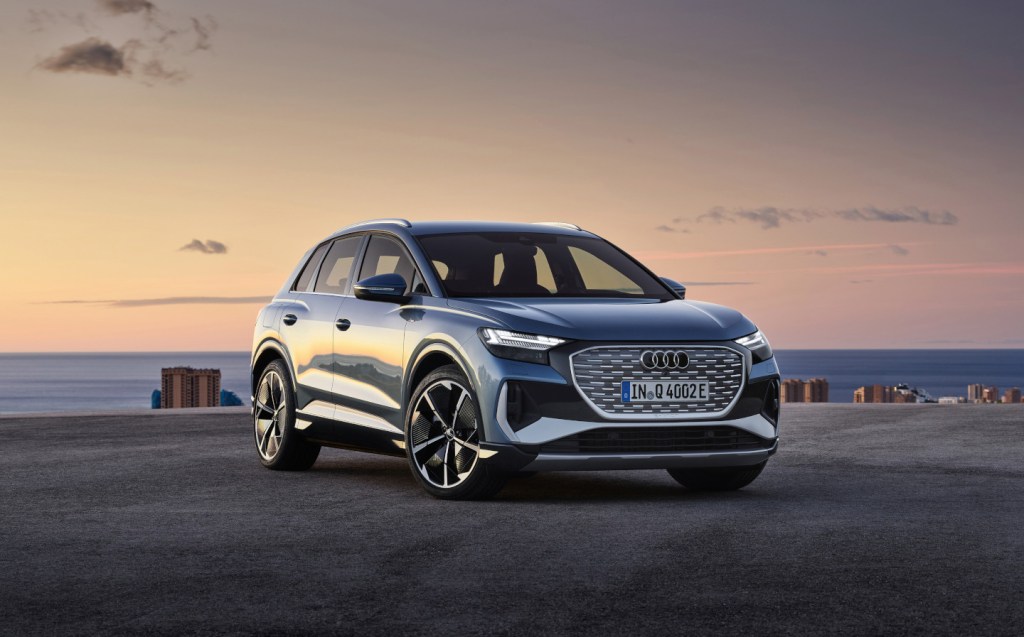
So it’s been a fantastic journey so far. And we still remain the number one player for internal combustion engines, but we’re the number one player in the UK at group level for battery electric vehicles as well.
Driving.co.uk:
Has Audi’s success in EV sales come as a surprise? I suppose Skoda hasn’t got as many pure electric products on sale compared to Audi at present, but traditionally Skoda is the volume player and yet Audi seems to be ahead in terms of sales.
Alex Smith:
I don’t think it’s an odd situation at all, no. Audi has got a portfolio of fantastic electric products. Of course I’m going to say that but I firmly believe it. The Q4 e-tron’s market acceptance, whether it’s in the SUV or Sportback form, has been exceptionally strong. And then there’s the excitement of a product such as the RS e-tron GT, which is just a phenomenal piece of engineering and a very beautiful piece of design. It’s something which is giving a real boost to the Audi brand in no short order at all.
But Skoda has been very successful with the Enyaq and the Enyaq Coupé. It’s just been updated with increased range, with the 85 variant that replaces the 80 variant; in vRS form it has more than 300 miles of range, and it’s a really fantastic driving experience.
So whichever brand we talk about, from Cupra, Skoda, Audi, Volkswagen, Volkswagen Commercial Vehicles… electrification is a very important part of the portfolio.
I think one thing we have seen in the battery electric vehicle market this year is kind of two speeds, whether you’re talking about company car purchases or private buyers. There’s no denying that retail sales to private individuals of battery electric vehicles has been in very slight decline, whereas in the fleet market it is still actually really robust.
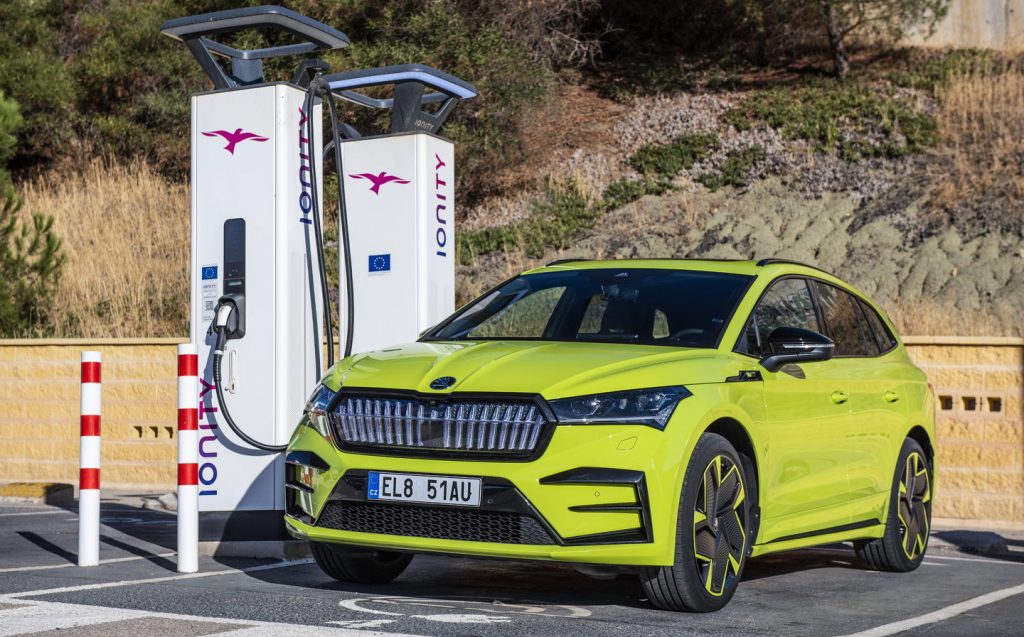
Driving.co.uk:
How much of that is down to government incentives?
Alex Smith:
In the fleet market, a user has extremely advantageous benefit in kind conditions. And in the retail market you’ve seen the progressive withdrawal of incentives for the private consumer. If we fast forward a couple of years, vehicle excise duty will become payable on electric vehicles and the expensive car supplement will be levied on EVs, too.
So we’ve seen the progressive withdrawal of incentivisation in the private market [but] I think it’s very important that there is a level of sensible incentivisation of electric vehicles because it really performs a key role in signalling the direction of travel.
It is important we don’t lose sight of the point of the transition to electrification; I’m stating the obvious, but it’s the decarbonisation of road transportation — that’s the goal; that’s the aim. It’s no longer a case of someone wanting to use a different powertrain technology now. Everyone on this planet has a very substantial vested interest in a transition to zero emissions, zero tailpipe pollution technologies, and therefore signalling the importance of this as a societal activity is really, really important. And incentivisation is one way to do that.
Driving.co.uk:
What sort of incentives should be brought back, then? And do you think Prime Minister Rishi Sunak’s messaging, particularly in pushing back of the ban on new petrol and diesel car sales to 2035, is counterproductive?
Alex Smith:
I think the really relevant point is that the zero emission vehicle mandate [which requires carmakers to sell an increasing proportion of electric vehicles each year, from 2024] remains in place. That’s something that has been been mooted for a long time and was in consultation for quite a while.
We welcomed the clarity that the consultation response gave industry; we welcome the certainty. Volkswagen Group globally has invested €120 billion over the next five years in electrification and digitalisation.
So for us it’s straightforward: the product investment is there and the direction is set, and the zero emission vehicle mandate lays out the trajectory that manufacturers are required to follow through to through to 2030.
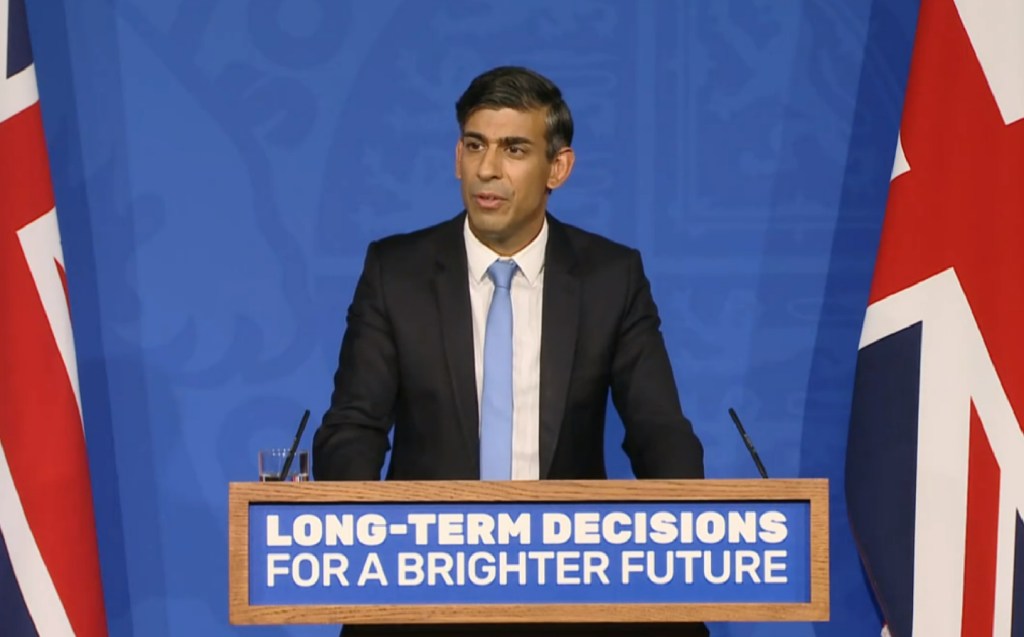
Driving.co.uk:
And the ZEV mandate, just to be clear, hasn’t changed since Sunak’s announcement?
Alex Smith:
Well, no, the trajectory for passenger cars remains consistent with the first consultation publication, but for light commercial vehicles there is a slight change in the first couple of years. But in essence, since the Prime Minister’s announcement on the 2030 to 2035 issue, the zero emission mandate continues as anticipated. So from our perspective, it makes no difference to our plans.
Driving.co.uk:
That’s the product side, but what about the EV landscape into which you’re attempting to sell the cars? When it comes to charging infrastructure and so on, where are we and what changes do you think are required to help buyers switch to electric?
Alex Smith:
At the moment, we’re in — and I hope this doesn’t sound too much like management speak — the transition from the “early adopter” phase to “early mass adoption”.
When a new technology comes out, people who are extremely interested in technology, who have quite progressive mindsets, adopt that technology. But there is a finite number of those consumers.
After that point you then need to transition into early mass adoption, and the level of convincing, the level of proof and the level of scrutiny that people apply to their purchase decision increases. Because they are making a decision which is not necessarily completely focused on the excitement of adopting a new technology; it’s about how does this technology compare with the technology that I’ve been used to throughout my motoring life so far. A different mindset has to be applied.
Real, rational matters become disproportionately important. “How much does it cost?” is an extremely rational driver of sales at this point.
If I compare Golf and ID.3, which is a pretty obvious comparison for me to make, the ID.3 will have a retail price premium over the equivalent Golf — probably of about plus 10 per cent. But when you then start to build in the difference in residual values [aka depreciation], the difference in usage costs if you recharge predominantly at home — which a lot of EV drivers do — the lower servicing costs, maintenance costs over three years of the vehicle’s life, you start to get much closer to what we call total cost of ownership parity.
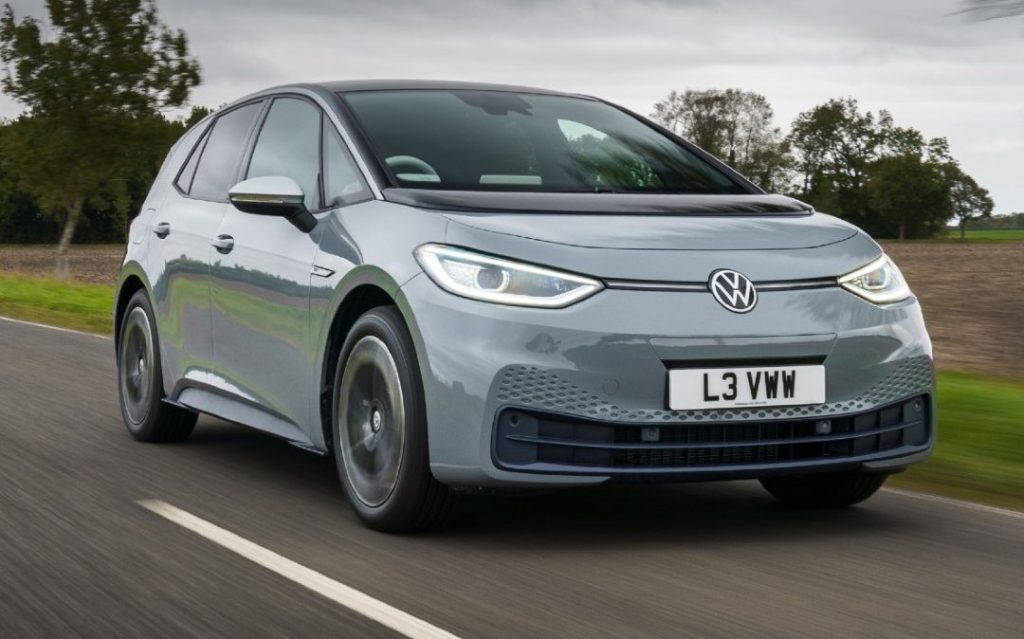
But this is a more complex story than just saying to a consumer that it costs the same in terms of retail price. And therefore it’s incumbent on us to ensure that we put an enormous effort into training our retailers and into our explanatory materials to ensure that we’re able to articulate the benefits, and the relative costs of transitioning to an electric vehicle, for our consumers.
One of the other key concerns that consumers have is the sufficiency of charging infrastructure. It’s very important that we press hard on building the public charging infrastructure, ahead of demand. At the moment, the OEMs [vehicle manufacturers and suppliers] have a binding target in terms of the zero emission mandate but there are no binding targets on the infrastructure industry.
It’s really important that there’s a joined up approach in terms of grid network operators, charging infrastructure providers, government, local authorities, planning regulations, etc., to facilitate this build out of an appropriate charging infrastructure.
The charging infrastructure is growing, but if we look, for example, at its geographical spread at the moment, close to half of all the available public chargers are in London or the south east. It’s really important that the charging infrastructure has a geographical democracy to it. It needs to be ubiquitous in order for it to be utterly convincing for prospective EV buyers. And it’s really important that progresses quickly now.
Driving.co.uk:
You talked about total cost of ownership. But some commentators have made predictions about retail price parity between electric and combustion cars coming fairly soon. Do you do you see that happening without incentives?
Alex Smith:
With any new technology, as the economies of scale build and the technology is refined, then the unit prices fall. So that’s something we can anticipate happening in the coming years. But I think our role is to be really good at articulating the comparative costs of products that are on the market now.
We have various comparison tools that are available for consumer use, and of course we put a lot of effort into educating and training our partners in the retail networks. And as I say, with ID.3 versus Golf, in terms of total cost of ownership, we see with consumers who are predominantly charging at home, we’re seeing total cost of ownership parity.
So retail price is one thing but it’s really not the only part of the equation. Our job is to articulate the total costs accurately, transparently and convincingly.
Driving.co.uk:
The other thing is the China factor. A lot of manufacturing takes place in China, including by SAIC for VW, and state-backed Chinese firms own a lot of the mining and refining that goes into the batteries. Are there any signs that you want to move away from reliance on China and Chinese suppliers?

[A PR person jumps in to highlight a recent VWG report on precious metals, which lays out the company’s plans on from where they will be sourced and how it is aiming to make sure it is “somewhat less reliant on China in the future”.]
Driving.co.uk:
From a U.K. perspective, though, there are a lot of Chinese car brands entering the market. Is that a worry to you, particularly given that they are potentially able to undercut Western/ European carmakers?
Alex Smith:
There’s always been a substantial amount of competition in the U.K. car market. We welcome competition. Our role is to ensure that we bring compelling products that offer value to the consumer.
All of our brands have gained market share over the course of 2023, and I’m very proud of the work that the VWG teams and the dealer networks have done in order to make that happen. Our role is to focus on our products, the way that we’re looking after the customer, and the value that we bring both in the product substance and in the consumer experience.
Driving.co.uk:
What about unfair competition from China? Because that’s certainly been looked at by European Union and Commission in terms of state subsidies.
Alex Smith:
We note the activities of the European Union in that regard but our role within this organisation is to ensure that we communicate the product substance exceptionally well and look after our customers.
Driving.co.uk:
It was reported that Seat is to stop manufacturing cars, and that’s partly down to the success of Cupra. What does that mean for Seat in the UK, and what are the timelines? Are dealers on notice?
Alex Smith:
No, they’re not on notice.
[The PR officer jumps in to confirm that recent comments about Seat to this effect from VWG CEO Thomas Schäfer had been “misinterpreted”]
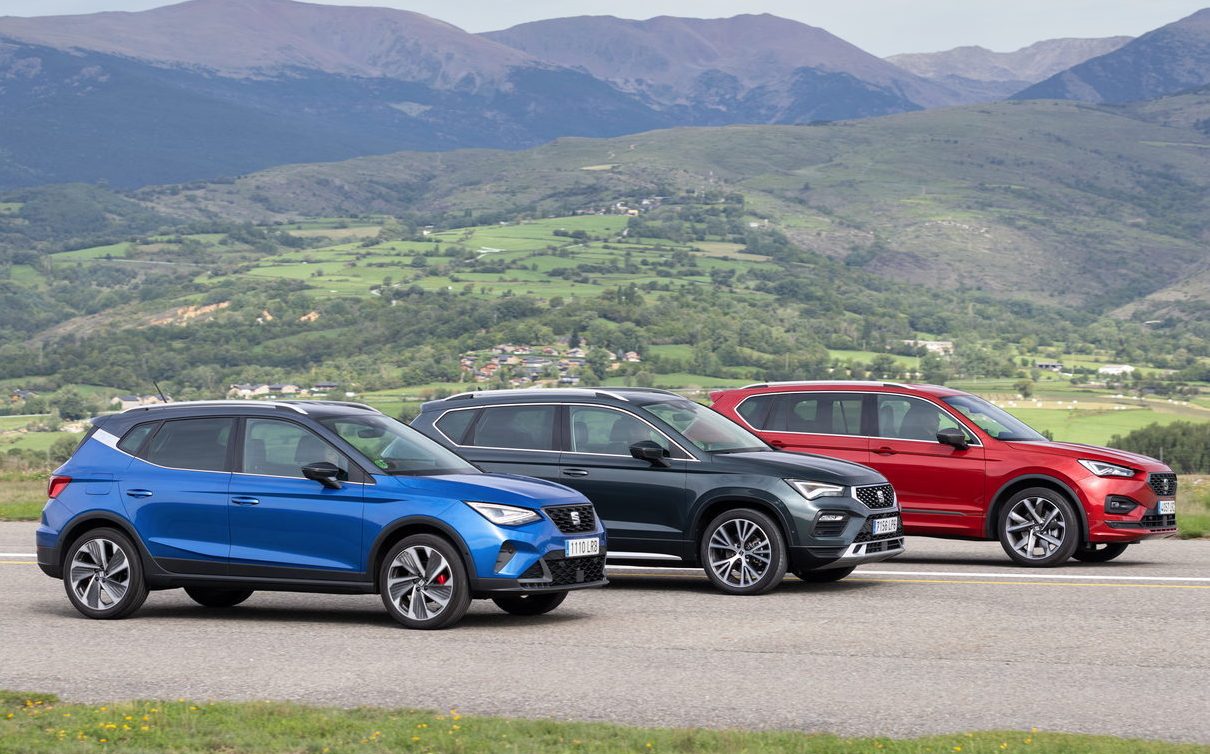
Alex Smith:
Cupra has been a phenomenal success and the progression of the brand is something that we’ve all been delighted about. In the UK, it’s up by 78 per cent year on year in terms of market share, and the Born electric car has been hugely well received, as has the Formentor. The positioning, the youthfulness, the attitude and the emotional design of Cupra has really resonated with the UK consumer. So that’s fantastic. The future product plan for Cupra is very exciting, with Tavascan on the way, and Terramar as well.
Seat has also grown this year; up 44 per cent this year. And there are updates planned to the internal combustion engine products that Seat brings: Ibiza, Arona and Leon will all be updated. That’s confirmed. We see opportunity for Seat absolutely in the future, and we look forward to receiving those product updates in due course, and continuing to develop Seat’s business in the UK.
Driving.co.uk:
Moving on… brand images die hard, don’t they, but Skoda’s really had a turnaround since VW Group took over. What’s that down to? The products, the marketing…?
Alex Smith:
Look, in automotive everything starts with the product, doesn’t it? I love visiting Skoda when we get the opportunity to go over to Skoda HQ in Mladá Boleslav. It’s got a special atmosphere, it really has.
The technical competence of the Czech nation is not to be underestimated. And it’s delivered with a real human practicality; one thing that you fall in love with when you work for the Skoda brand is its human touch. Something that is typically Skoda is the ice scraper under the fuel flap, or the umbrella in the door. There’s a real, practical delight in the way that Skodas are conceived, the way that they’re designed and the way that they’re delivered. And they’re also pretty fantastic to drive, to be perfectly honest.
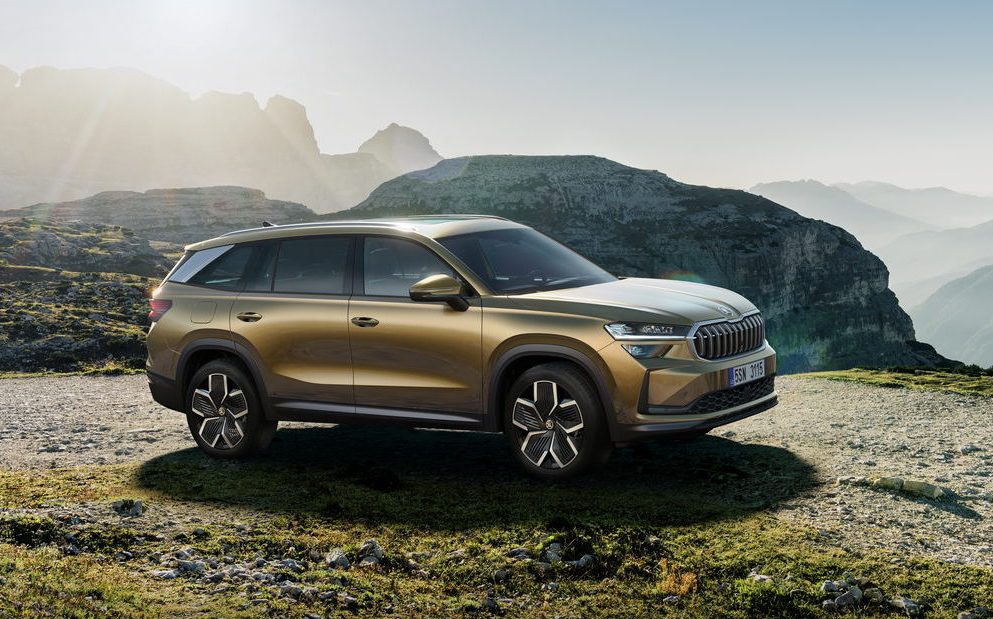
There’s a new Kodiaq next year, there is new Superb on the way, and the Fabia was recently updated and is also a very popular product. There’s this really high product quality delivered with a human touch. there’s a human quality to the engineering of a Skoda.
What that results in is extremely high net promoter scores. When you ask consumers would you recommend Skoda to a friend, the proportion favourable comments is very significant. There are very few detractors and very few neutrals. So what we call the net promoter score at the end of it is right at the top of the industry.
I think it is time to put away this archaic perception that it’s a product that is in some way ill equipped or low price. It’s not a low quality product; it’s not a cheap product. It delivers really excellent value. And there are there are plenty of people in the market who really appreciate having a well-equipped vehicle that’s really well thought out and has that good equipment level, but at a reasonable price.
Related articles
- If you were interested in this interview with Alex Smith, MD of Volkswagen Group UK, you might like to check out our Volkswagen ID.7 review: the sleek Tesla Model S rival that’s a the perfect SUV antidote
- Volkswagen plans one last hurrah for petrol power in its legendary Golf GTI
- Volkswagen ID. GTI concept previews fast version of forthcoming ID.2 electric car
Latest articles
- Watch new Porsche 911 GT3 smash Nürburgring record for manual cars
- Skoda Elroq 2025 review: Czech carmaker can’t seem to miss with its electric family cars
- Five best electric cars to buy in 2025
- Should I buy a diesel car in 2025?
- F1 2025 calendar and race reports: The new Formula One season as it happens
- Zeekr 7X AWD 2025 review: A fast, spacious and high tech premium SUV — but someone call the chassis chief
- Denza Z9GT 2025 review: Flawed but sleek 1,062bhp shooting brake from BYD’s luxury arm
- Extended test: 2024 Renault Scenic E-Tech review
- Best-selling cars 2025: The UK’s ten most popular models of the year so far


